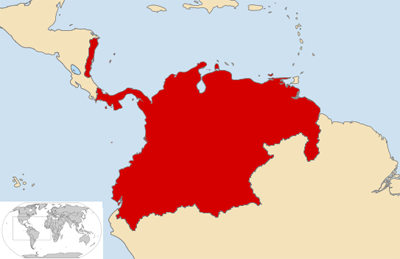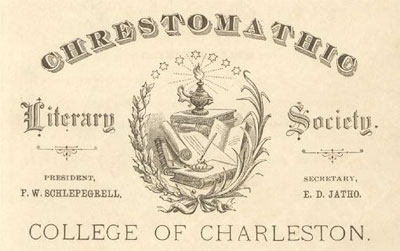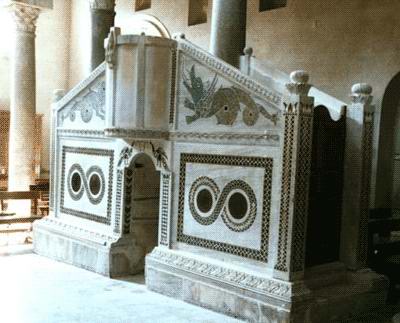Miscellany — Winter 2010–2011
Banks, bankers and banking: why am I on the verge of the road?
I spent some time over the Christmas/New Year break thinking about a topic for this rather delayed Miscellany (for which my apologies). One topic which kept nagging at my mind was banking, and not only because it is constantly in the news. I have an investment banker from the City as a near neighbour in South Oxfordshire. He lives in the village next to mine; his house is the biggest bar one owned by a cousin of an English duke, but I have played badly on his tennis court during "village tournaments" in past summers. So there is a degree of generosity and social sensibility to be found in bankers.

South Oxfordshire.
However, the discussion of their money and morality becomes personal on many late, winter evenings as he and I return from our offices. I cannot resist the bile of anger and envy as his chauffeured Bentley, brilliantly big and bright, forces me to the verge of our shared country lane.
So I did some research in the Electronic Enlightenment to see what I could find on bankers, banks and banking. I didn't expect their bonuses, or their Bentley's, to be an issue those hundreds of years ago, but I thought it might prove interesting.
Now research in Electronic Enlightenment is nothing if not suggestive . . . indeed it can be downright distracting with the range and quantity of information contained in the correspondences! By that I mean: great fun, highly engaging and irresistibly intriguing, as you will see in what follows.
Jeremy Bentham, London, and Simón Bolívar in Colombia
The last, most recent letter I found (written Wednesday, 4 June 1823) had additional historical and geographical interest, being part of an exchange between Jeremy Bentham and Simón Bolívar after the liberation of Colombia from Spain.
The exchange in EE is not complete, there is at least one letter from Bentham to Bolívar, 24 January 1820, which is apparently now missing — University College London has an autograph draft of a letter not actually sent to Bolívar, which is docketed:
1820 Jan 24 / J.B. Q.S.P. / to / Don Simon Bolivar / etc etc etc New Granada / Venezuela. / Brouillon of a / Letter written / more than a year / ago but not sent. / Another of which the brouillon is preserved / written and on / this day sent instead / of it, by Mr Hall / engaged as Quarter Master General by / General Devereaux.
— University College x. 3–6
The first letter we have is from the end of that year, Bentham to Bolívar, 24 December 1820, where we first hear of the earlier letter and also hear Bentham's self-confidence wrestling with rhetorical politeness:
. . . Before me, lies a letter dated Baranquilla, August 1820 from Mr. Francis Hall (Colonel in your Establishment I see him stiled in our Newspapers) from which I receive the agreeable information of the kind reception you were pleased to give to him, and the flattering conception that it was to the letter I took the liberty of troubling you with that he considered himself as more or less indebted to you for it.
— Jeremy Bentham to Símon Bolívar, 24 December 1820;
EE letter ID: bentjeOU0100246a1c
And what is the purpose of the letter to Bolívar? It was an offer Bentham could not resist making to every new or constitutionally reformed country from Spain to America — indeed, it was not so much an offer of help, as a statement of fact: once swords were ploughshares, reformers and founding fathers must see that the next necessary task was to engage Bentham's assistance, no one else being as well suited:
To will the end, is to will the means, if they are not dishonest ones. My wish is — at the same time, and by the same means, to render to you, and to Spain, whatever service may be in my power. At the hands of Spain, I possess, already, as much confidence as I need desire. At your hands, it can not but be my wish to possess whatever confidence may be necessary, or conducive, to that same purpose. . . .
My principles on the subject of legislation are more or less known to you. On the ground of those principles, I expect, within a month, a commission from the King of Spain, in form, to draw up for Spain an all-comprehensive body of law to be submitted to the Cortes. Before me lies the copy of a commission, given, in the King's name, to the principal Secretary of the Spanish mission here, to consult and treat with me about a matter of finance. I have, for some time, been labouring, might and main, in the joint service of yourself and your till-of-late inhuman enemy. I say, in your joint service: for, the title of my work, is — 'Rid yourselves of Ultramaria'.
— Jeremy Bentham to Símon Bolívar, 24 December 1820;
EE letter ID: bentjeOU0100246a1c
Ultramaria . . . ?
The word isn't in the Oxford English Dictionary, though there is the cognate "ultramarine" ("situated beyond the sea"). Some effort turns up a late 20th-century publication: the first printing of Jeremy Bentham's Colonies, Commerce, and Constitutional Law: Rid Yourselves of Ultramaria and Other Writings on Spain and Spanish America. In the Introduction the editor speaks of Bentham's life being dominated by Spanish affairs from 1820–1822 (though our letters show this continued till at least the summer of 1823 if one allows Colombian affairs to be Spanish ones too):
. . . Bentham coined the term ultramaria from the Spanish word ultramar to refer to the overseas possessions, or colonies, of Spain. Bentham was concerned about the threat posed to the viability of the new liberal regime by the very existence of the Spanish Empire: his advice to the Spanish people was that the only means of countering this threat was the granting of unconditional independence.
— Colonies, Commerce, and Constitutional Law. Ed. Philip Schofield. Oxford: OUP, 1995, p. xvi
Bolívar replies . . .
It is nearly two years before Bolívar replied to Bentham on 27 September 1822, referring to the Englishman as "the Geometrician of Legislation" — offering delayed thanks for his offer to help establish a suitable legal and legislative structure for the new state of Colombia.
Bolívar's letter is rather fawning and certainly more obsequious than that sent to Bentham by US president James Madison six years earlier following a similar offer:
To come to the point at once ‚ Give me, Sir, the necessary encouragement . . . I will forthwith set about drawing up, for the use of the United States, or such of them, if any, as may see reason to give their acceptance to it, a complete body of proposed law, in the form of Statute law. . . .
— Jeremy Bentham to James Madison, 30 October 1811;
EE letter ID: bentjeOU0080182a1c
Madison, 5 years late in replying, excuses this lack of courtesy by pleading the demands of the War of 1812:
I have a greater debt of apology, I fear, than I can easily discharge, for having so long omitted to answer your letter of 1811. . . .
It happened that your letter was received in the midst of occupations incident to preparations for an anticipated war, which was in fact the result of the anxious crisis. During the period of hostilities, which apparently became more and more uncertain in their duration, there could not be leisure, if there were no impropriety, in opening a correspondence. On the removal of these difficulties, by the happy event of peace, your letter was among the early objects of my recollection. But a variety of circumstances, which it would be tedious to explain, deprived me of an opportunity of bestowing the proper attention on it, until the recent busy Session of Congress became a further obstacle which has just ceased with the adjournment of that body.
— James Madison to Jeremy Bentham, 8 May 1816;
EE letter ID: bentjeOU0080521a1c
Bolívar has a parallel excuse: he too had been occupied fighting a colonial power, Spain, though for national independence rather than their own expansive ambitions for territory and wealth. I love Bolívar's image of Bentham's moral potency:
. . . The fact is, that I was not able to do more than just to run over the precious communication you favored me with, which I have not seen since, having led so unsettled and embarassed a life, and having been obliged to take the whole weight of affairs on my own shoulders. But, Sir, could you have conceived, that the name of the preceptor of Legislators is never pronounced, even in these savage regions of America, without veneration, nor without gratitude? — I am moreover particularly indebted to you, for the direct communication, without any particular merit of my own, of a part of those sacred truths, which you have scattered over the Earth to fecundate the moral world — I have paid my tribute of enthusiasm to Mr Bentham and I hope Mr Bentham will adopt me as one of his disciples, as, in consequence of being initiated in his doctrines, I have defended liberty, till it has been made the sovereign rule of Colombia . . . .
— Simón Bolívar to Jeremy Bentham, 27 September 1822;
EE letter ID: bentjeOU0110154a1c
Now I'm wondering about Columbia . . .
Colombia is not in the news as often as bankers these days, now the spiritus loci that once haunted the land seems to have moved north to Mexico. And I had in memory a link between Bolívar and Venezuela and Ecuador, but the link to Columbia I'd forgotten. Odd, as I'd recently learned from a Colombian colleague that the country contains a large body of the Basque diaspora (as do Bolivia, Chile, Cuba and Mexico among others). Being of Celtic stock I've always found interesting the diaspora of people from wild, mountainous regions (where we often seem to settle).
It turns out that Bolívar was himself the offspring of that very dispersal:
. . . The surname Bolívar derives from the Bolívar, aristocrats who came from a small village in the Basque Country, Spain, called La Puebla de Bolívar.
— Wikipedia contributors. "Simón Bolívar." Wikipedia, The Free Encyclopedia. Wikipedia, The Free Encyclopedia, 19 Jan. 2011. Web. 19 Jan. 2011.
The territory Bolívar helped liberate was vast:
. . . The Viceroyalty of New Granada (Spanish: Virreinato de la Nueva Granada) was the name given on 27 May 1717, to a Spanish colonial jurisdiction in northern South America, corresponding mainly to modern Colombia, Ecuador, Panama, and Venezuela. The territory corresponding to Panama was incorporated later in 1739. In addition to these core areas, the territory of the Viceroyalty of New Granada included Guyana, and parts of northwestern Brazil, northern Peru, Costa Rica and Nicaragua.
— Wikipedia contributors. "Viceroyalty of New Granada." Wikipedia, The Free Encyclopedia. Wikipedia, The Free Encyclopedia, 12 Jan. 2011. Web. 19 Jan. 2011.
Present day Colombia alone is nearly twice the size of France and taken together with Venezuela and Ecuador (forgetting for the moment the rest of actual territory), New Columbia was a quarter of the size of the United States.

Viceroyalty of New Granada.
At independence, 1819, this territory became the Republic of Colombia, with a new constitution adopted in 1821. The first president was Venezuelan-born Simón Bolívar with Francisco de Paula Santander as Vice President (could there be a connection with the Spanish banking giant there?). Pro-Spanish resistance wasn't completely defeated until 1822–1823 (our surviving letters run from 1820–1823).
Back to Bentham . . .
Some three months later we have a letter from Bentham to Bogotá (6 January 1823) recommending the qualities of what he calls elsewhere a chrestomathic education, a practical education in the arts, sciences, mathematics and languages. Bentham has sent Bolívar a copy of Public Education: Plans for the Government and Liberal Instruction of Boys in Large Numbers, a book by Mattew Hill (Charles Knight, London, 1822). Hill then ran a school of this sort at Hazlewood near Birmingham, a school still famous for its disciplinary programme. Bentham praises the school and its results most warmly in the letter.
The school was founded by Matthew Hill's father, Thomas Wright Hill, a sometime brassfounder who wanted a good education for his children, which was otherwise beyond his means. When Matthew and his younger brother Rowland took over the running of the school in 1816, they decided to improve it:
. . . the chief aim of which was 'to leave, as much as possible, all power in the hands of the boys themselves'.
— P. W. J. Bartrip, "'A Thoroughly Good School': An Examination of the Hazelwood Experiment in Progressive Education". British Journal of Educational Studies. Vol. 28, No. 1 (Feb., 1980), p. 47.
The reforms began "when a court of justice and jury system were introduced to supplement the authority of masters" (Bartrip p. 47). Initially the masters sate with the boys' representatives, but from the end of 1817 there was only one voting member of staff, corporal punishment was abolished and the committee had near supreme power, making rules subject only to the principal's approval.
In case one is tempted to think that such things were limited to the extraordinary mind of Bentham, here is a flyer for the "Chrestomathic Literary Society, College of Charleston (under the able direction of President, F. W. Schlepegrell).

Poster for Chrestomathic society, Charleston College.
Bentham's final letter to Bolívar in Colombia
Another six months pass and Bentham writes again to Bolívar, 4 June 1823, unable to help himself offering further, now more directly pointed assistance — don't worry, we return to banking in this letter.
Bentham begins, quite literally, by berating the current Columbian Agents in England:
Sir
I. Columbian Agents in England — their inaptitude —
— Jeremy Bentham to Simón Bolívar, 4 June 1823;
EE letter ID: bentjeOU0110238a1c
Being Bentham he has a solution; he recommends establishment of what he calls "the binational or ambonational plan" — which the bulk of Bentham's letter identifies as a specific diplomatic pattern he thinks Bolívar should adopt for the New Colombia: namely, the appointment of two Agents for Columbia, one English and one Columbian.
But ambonational . . . ?
Won't find that one in the Oxford English Dictionary either, though it does have the root of the word, ambo, n. <late Latin ammo (ambon-em), < Greek ἄμβων, which it defines as a "special name of the pulpit or reading-desk in early Christian churches; 'an oblong enclosure with steps usually at the two ends.'"
Depending on one's imaginative powers that may clarify his coinage. I thought a little more research might help. A quick Google of "ambo" and up pop dozens of images of . . . pulpits. So that didn't seem to help. I tried again, refining the search to "early Christian ambos" and there I saw a reference to a "12th century ambo, depicting the sea monster swallowing Jonah" in the Ravello Cathedral, Italy.

12th-century ambo, Ravello Cathedral, Italy.
Study this image for a moment and Benthem's coinage suddenly seems to make sense. He's thinking of a place physical or metaphorical from which one speaks with authority, but a specific kind of place where one can approach or mount from each side: an authoritative voice for a country, but with an approach, or agent, from each side.
Oh yes, this was supposed to be about banking . . .
Bentham lists the various activities to be undertaken by the agents, delineating the distinct characteristics of those from opposite sides of the "ambo". In item "5." he turns to banks, distinguishing the two sorts we've heard so much talk about over the last year: the equivalent of the "high street bank" serving what Bentham calls "pure and unquestionable" purposes, and the other more risky venture we think of as investment banking, which must be judged by its management and principles. How familiar does that sound?
5. Banks for saving, with or without paper money, the counting and carriage of intrinsically valuable money: do. for giving encrease to the quantity of capital. Between the two institutions, though counfounded under the same name, there is an essential difference as to the effects. Of the first sort, the usefulness may be pronounced pure and unquestionable: respecting the other, the point may not be quite so clear: especially as so much will depend upon the management, original plan, and practice under it, taken together.
In regard to both sorts, to the Columbian it will belong, to consider, at what place or places they may respectively be instituted to most advantage: to the Englishman, — on consideration of the practice under this head, in the several countries in which the institutions have place, in particular England and the Anglo-american United States, — to report, after conference with the Colombian, what places afford the best promise, in the case of Colombia.
In both instances, it will be for consideration, what part, if any, shall be taken by Government, in any such concern: whether it shall have any, and if any what, share in the adventure, and thence in the contributing of the capital: what restrictions, if any, it shall impose upon individual adventurers, for prevention of excess: whether, as in England, for that purpose, or for revenue, a tax in the form of a stamp-duty, shall be imposed, upon the notes circulated by private Bankers.
— Jeremy Bentham to Simón Bolívar, 4 June 1823;
EE letter ID: bentjeOU0110238a1c
Bentham's auto-icon, University College London.
He was much more than odd . . .
The man promotes practical education of a baccalaureate breadth in schools run by students; he conjures words out of air, inventing them in a synthesis of serendipity and acuity; he has a vision for making new countries or making old ones new again. As for the financial sector, already in the 1820s he is advising: government involvement — restrictions on individual adventurers — introduction of special taxes on bankers. The next time I'm in University College London (my daughter is currently reading fine art there), I'll take a few moments in front of Bentham's "auto-icon", with a rather more appreciative air.
Of country lanes again . . .
I see now that my bank-owning neighbour in his Bentley doesn't force me to the side of road, I've drifted there, distracted by words I don't know, stories I've not heard before and by the endless play of human history. Ah well, no need for envy then: live on EE and all such realms of information and enchantment!
— Robert V. McNamee
Director, Electronic Enlightenment Project
© 2011 University of Oxford